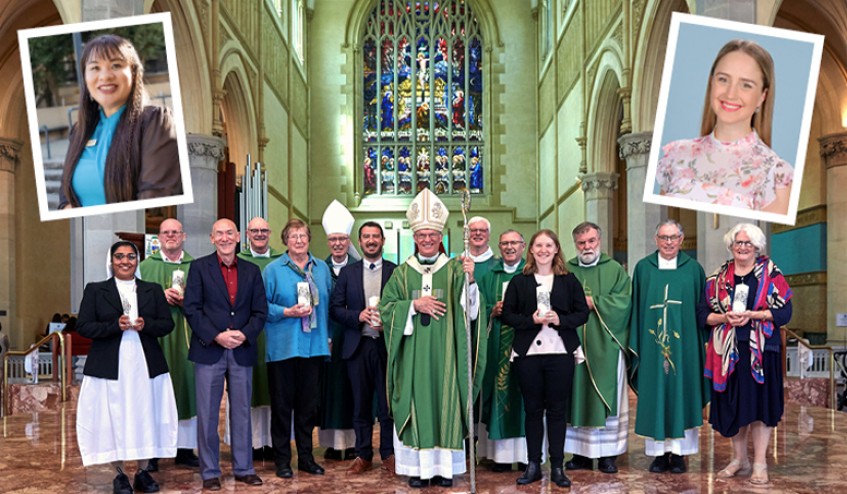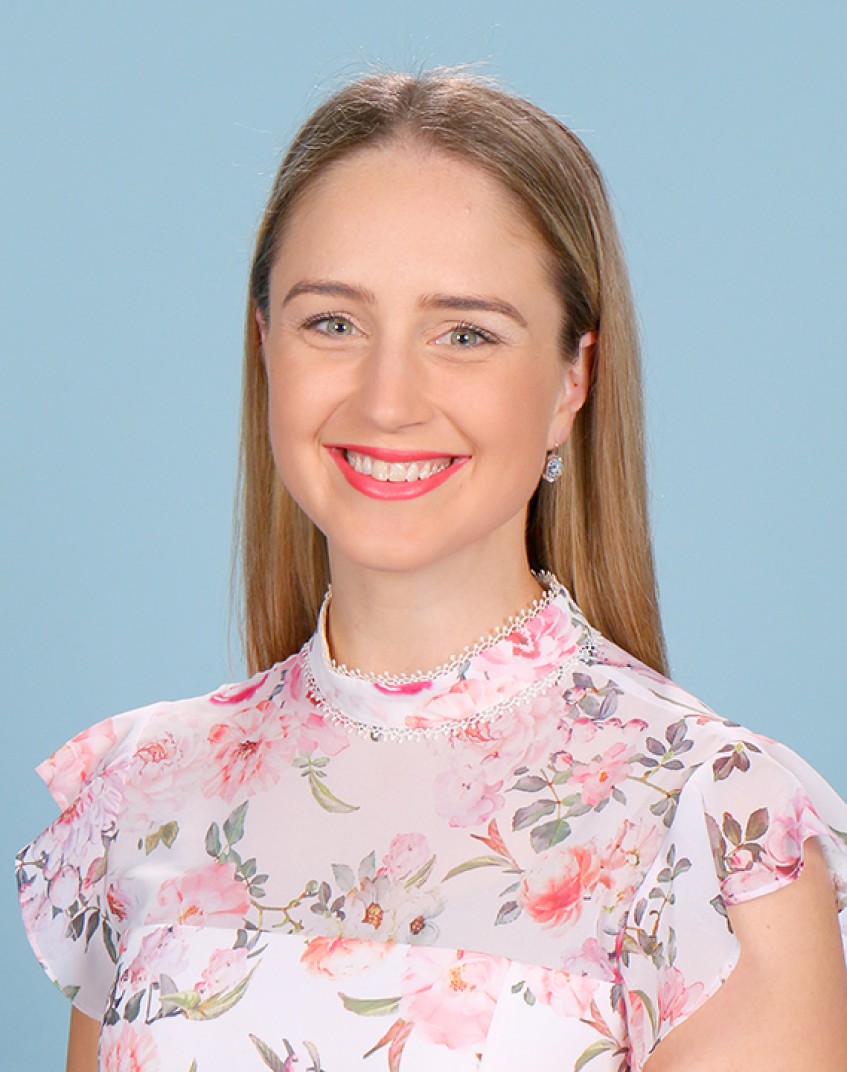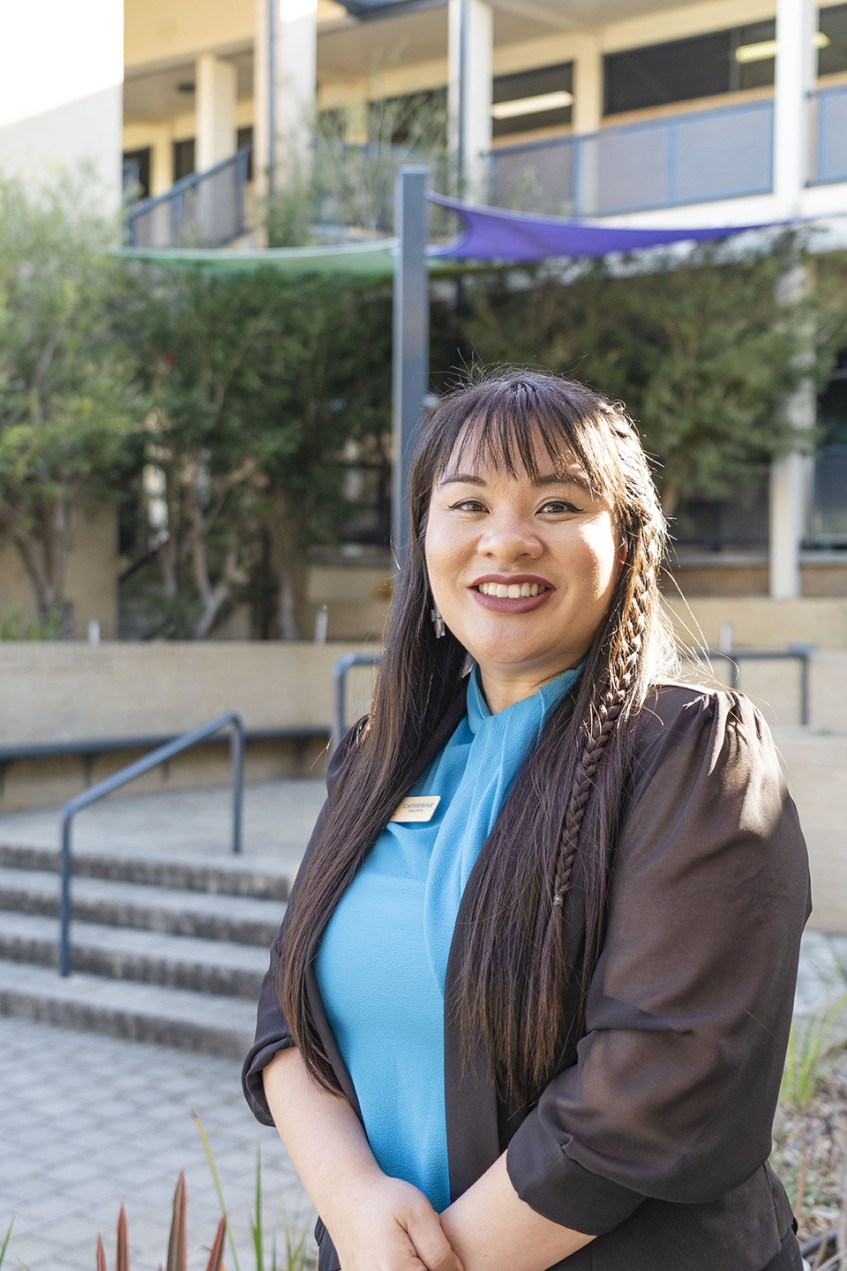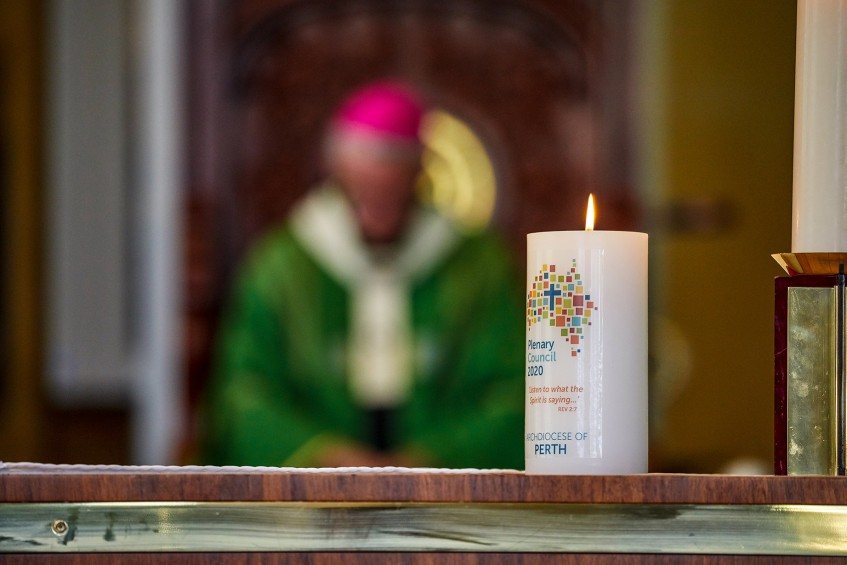SPECIAL REPORT: First Plenary Council Assembly takes multi-modal approach, fifteen new delegates from across Australia called

Delegates of Perth at the Commissioning in October, with inset, Catherine Nguyen, left and Gemma Thompson, right. Photo: RonTan/Archdiocese of Perth.
By Amanda Murthy
Plenary Council President, Archbishop Timothy Costelloe SDB has this week announced an additional 15 new delegates nationwide, who have been called to join the existing 267 delegates ahead of the first assembly of the Plenary Council (PC) to be held in October 2021.
The announcement was made in conjunction with another major update, confirming that the first Assembly which was scheduled to be held in Adelaide, will now take place with a combination of online and face-to-face participation, as uncertainty remains over restrictions on travel and gatherings.
The Archdiocese of Perth has received two additional delegates who have joined the current group of 12 delegates, including those that must be called and those who may be called.
The two additional delegates have been named as Catholic Education Western Australia Catechist Service Religious Education Consultant, Ms Catherine Nguyen and Iona Presentation College, Dean of Mission and Catholic Identity, Ms Gemma Thomson.

Iona Presentation College, Dean of Mission and Catholic Identity, Ms Gemma Thomson. Image: Sourced.

Catholic Education Western Australia Catechist Service Religious Education Consultant, Ms Catherine Nguyen. Image: Feby Plando
In a letter released to delegates this week, Archbishop Costelloe spoke about some of the factors surrounding Australian Catholic Bishops Conference’s (ACBC) decision to adopt this ‘multi-modal’ approach.
“After considering a range of possibilities, the Bishops confirmed that the first Assembly of the Plenary Council will go ahead from 3 to 10 October in 2021,” Archbishop Costelloe said.
“We also decided the Assembly will be conducted using a combination of videoconferencing and in-person delivery in diocesan, inter-diocesan or provincial groups.
“The Bishops recognise that the inability to gather as the whole body of delegates in Adelaide is disappointing. However, several major challenges were identified in relation to the first Assembly, some of which are outlined below,” he added.
“We also recognise that the work of the Plenary Council and the opportunities it creates cannot continue to be postponed.”
The possible challenges faced by the Plenary Council, as explained by Archbishop Costelloe, include the issue of social distancing, which he said will most likely be a part of the “new normal”.
“With a group of more than 300, many of the spaces at our venue will not allow us to gather while maintaining mandated social distancing measures.”
Other significant factors include relevant financial, health and travel risks.
“While they are not the primary concern, further delaying a decision on the celebration of the first Council Assembly would have created significant financial risks in terms of deposits on accommodation, venue hire and a range of other expenses,” Archbishop Costelloe cited.
“Although there will be a wide range of age groups represented, many of the delegates will be in the high-risk category because of their age. Despite speculation of a vaccine being available, it might not be accessible to all.
“Also, even if all border closures are lifted and requirements for isolation or quarantine are no longer in place, we cannot be confident that internal flights in Australia will have returned to their normal schedules. Neither can we be confident that airfares will not be much more expensive than they were prior to the pandemic,” he confirmed.
Archbishop Costelloe added that the decision to migrate to a multi-modal format was made to ensure that further planning could now proceed with greater certainty under the current circumstances.
“We had essentially been preparing for an in-person gathering, while at the same time trying to devise a backup plan if COVID-related restrictions remained in place,” he said.
“Now we can focus solely on ensuring that the first assembly can honour and carry forward the listening, dialogue and discernment that has already taken place, albeit in ways we couldn’t have imagined a year ago.”
Noting that while the details still need to be determined and the circumstances of the various parts of Australia would need to be considered, Archbishop Costelloe said the basic idea would be that Council delegates gather in small groups, and that small groups interact with each other online to retain the national character.
“We are mindful that other issues such as the technical logistics and support, easy access and use for all delegates, the challenging nature of being online for long periods of time and the challenge of doing communal discernment must be addressed in order for the first assembly to be successful,” Archbishop Costelloe stated.

Archbishop Costelloe has this week elected and welcomed 15 new delegates nationwide, who will be joining the existing 267 delegates, as they journey in anticipation towards the first PC Assembly, to be held in October 2021. Photo: Ron Tan.
“Work has already begun, and it will resume with urgency later this week when the Steering Committee meets next.”
Archbishop Costelloe reminded Australian Catholics that the Plenary Council is a years-long journey, and that there will be a second assembly in Sydney in July 2022.
“The first assembly will inevitably take on a somewhat different flavour because of the multi-modal format, but the key principles of prayer, of discernment and of renewal in Christ remain central.”
